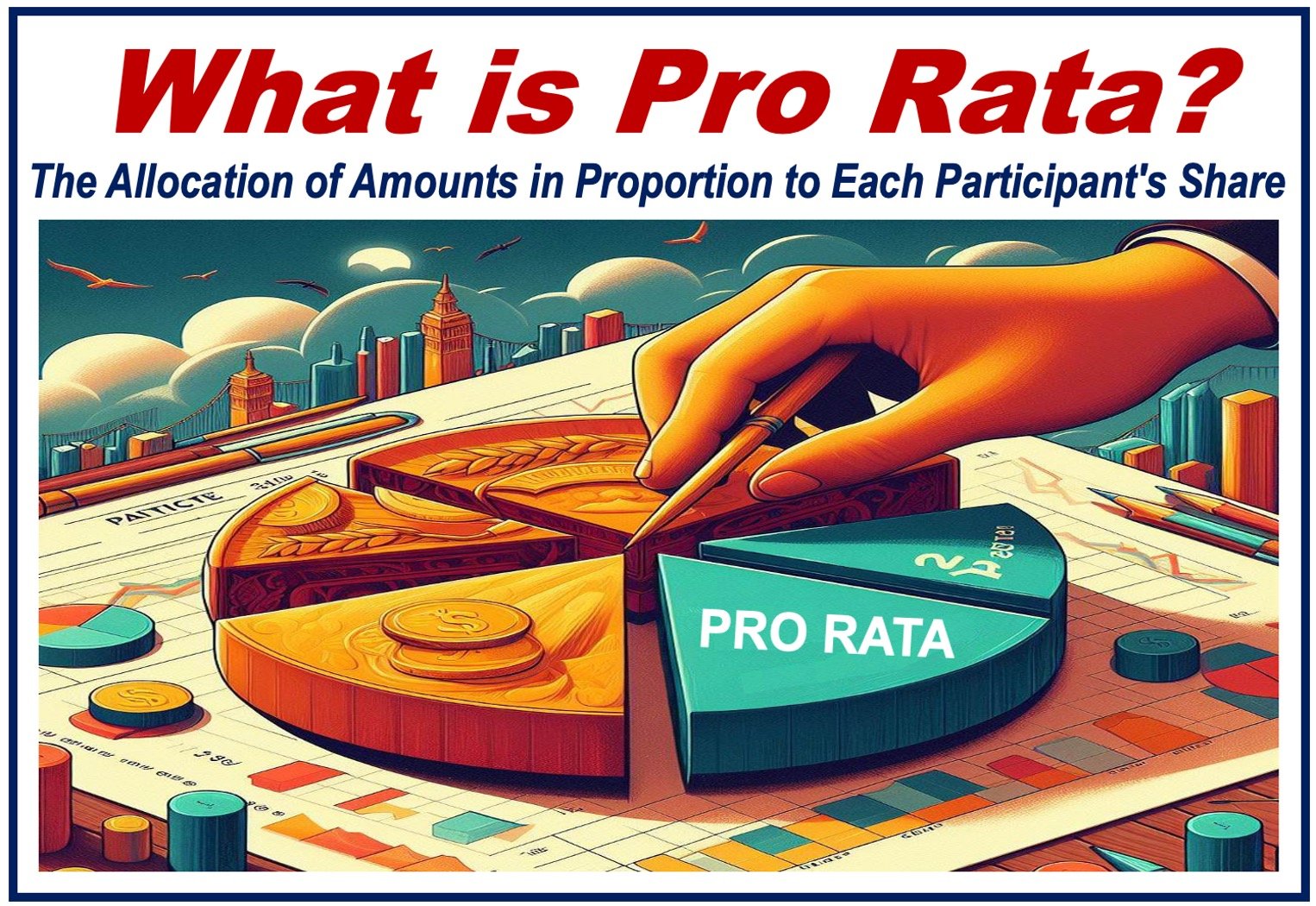The term ‘Pro Rata’ is widely used in finance, law, and general business. It is a method of allocating a quantity proportionally based on individual shares of the whole. It makes sure that each party receives or pays an amount that is proportional to their share of the total.
Principles of pro rata
The following are the key principles of pro rata:
Equitable Distribution
It is utilized to split resources or obligations fairly among multiple parties.
Based on Contribution or Use
Allocations are typically based on the level of each party’s contribution or usage.

Common Applications of pro rata
In Finance
- Dividend Distribution
Companies frequently issue dividends to shareholders on a pro rata basis, which means that each investor receives dividends according to the number of shares held.
- Insurance Premiums
If somebody cancels an insurance policy mid-term, the insurance company calculates the refund on a pro rata basis.
In Business
- Partner Dissolutions
When a partnership dissolves, the assets are distributed pro rata, that is, according to each partner’s contribution to the business.
- Work Compensation
Part-time employees may receive benefits such as annual leave on a pro rata basis, depending on the number of hours they work compared to full-time employees.
In Legal Agreements
- Debt Repayment
In bankruptcy proceedings, creditors may receive payments on a pro rata basis; they receive a share of available funds proportional to the size of their claims.
Benefits
There are several benefits to using pro rata allocation, including:
Fairness
It ensures that there is a fair and equitable distribution based on agreed-upon criteria.
Clarity
It offers a straightforward and reasonable approach to distributing resources or obligations.
Flexibility
We can use this type of allocation in a variety of scenarios, including financial transactions and day-to-day corporate processes.
Challenges and Considerations
Utilizing pro rata distribution comes with its own set of challenges and critical points to consider:
Navigating Complex Calculations
In some situations, determining the exact pro rata share can be complex, mainly in cases where there are several parties or variables involved.
Agreement on the Basis of Proportion
All parties must agree on what constitutes a fair pro rata calculation.
